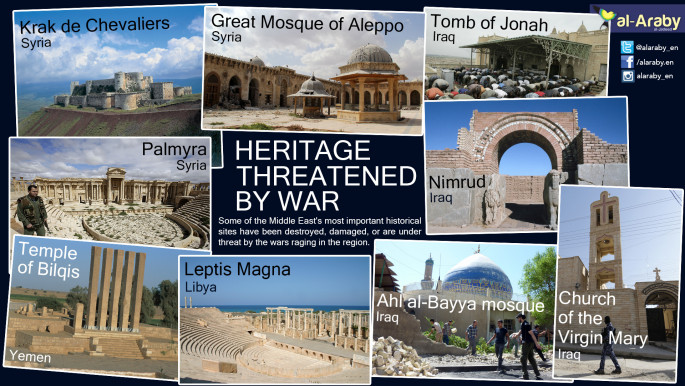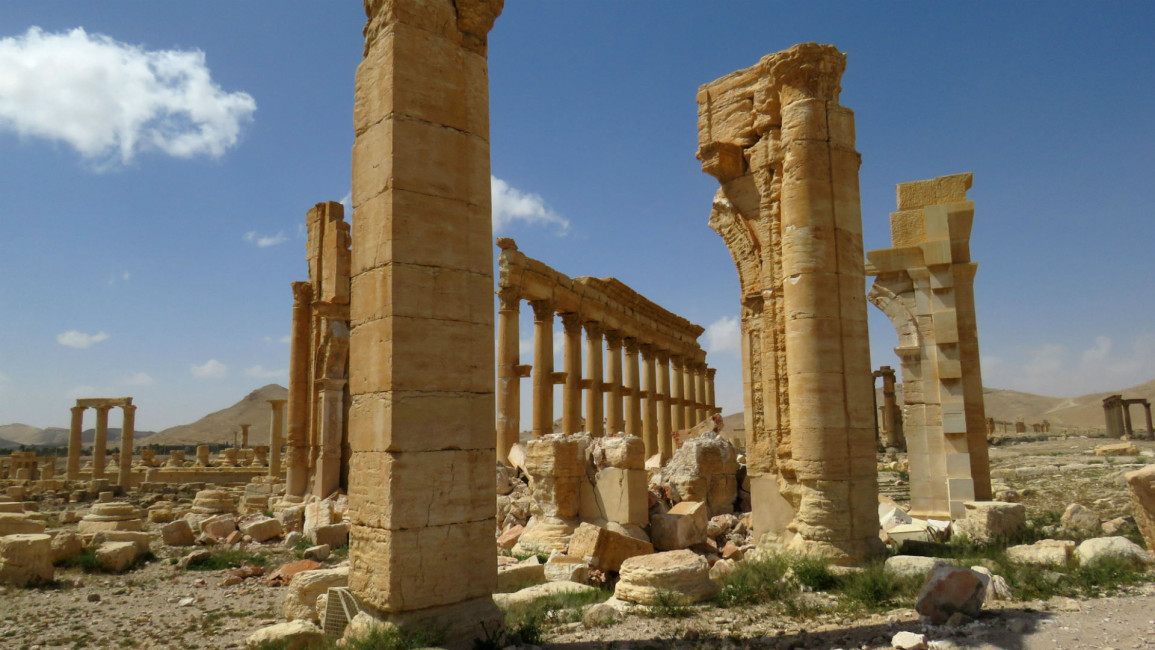Ancient Syrian treasures worth $26m shipped to US
Ancient Syrian treasures worth $26m shipped to US
Documents show that antiques have overtaken oil as Syria's largest export to the United States.
2 min read
Demand from foreign collectors is fuelling the market for stolen historical artefacts [AFP]
Since the start of Syria's war in 2011, $26 million worth of antiquities have been imported to the United States from the war-torn country, according to Live Science.
The news website gathered its information from US Census Bureau documents, which listed many unidentified and undated items, marked only as "over 100 years old."
The documents did not reveal, however, whether the items were imported illegally or whether profits were being made from their resale.
The bulk of the antiques in the Census Bureau documents had arrived in New York, a hub for collectors and dealers.
With such huge demand for Syrian historical artefacts, antiques have now overtaken oil as the country's largest export to the US.
It is this demand, however, that is fuelling the looting and destruction of many of the Middle East's historical sites, which have become a fast-money option for many who are desperate to make a living.
Ancient historical sites in Egypt, Iraq and Syria have been targeted by robbers since the upheaval brought about by the Arab Spring uprisings of 2011.
The Census Bureau data also showed that more than $12 million worth of Iraqi antiques had been shipped to the US since that same year.
Concerns are mounting over whether the sale of these items is funding militant activity in the Middle East.
On Wednesday, Russia's ambassador to the United Nations expressed his concern about the "100,000 cultural objects of global importance" and the "4,500 archaeological sites" currently under the control of the Islamic State group.
"The profit derived by the Islamists from the illicit trade in antiquities and archaeological treasures is estimated at $150-200 million per year," Vitaly Churkin wrote in a letter to the UN's Security Council.
The Russian envoy also described how historical objects were dealt with by the IS group's "antiquities division", which is understood to deal with the items like natural resources – to be exploited and sold.
Ambassador Churkin's letter also implied Turkish culpability in the proliferation of the illegal trade.
"The main centre for the smuggling of cultural heritage items is the Turkish city of Gaziantep, where the stolen goods are sold at illegal auctions and then through a network of antique shops and at the local market," Churkin wrote.
On Thursday, Turkey issued a statement saying that it was looking into the Russian claims.
"Even though the claims in the Russian media and recently brought to the UN by the Russian authorities have been made for political purposes and as propaganda, they are being seriously investigated," a Turkish foreign ministry official said.
"Turkey will make every effort it can to protect cultural assets, which are the common heritage of humanity, and ensure they are safely passed on to future generations."
The news website gathered its information from US Census Bureau documents, which listed many unidentified and undated items, marked only as "over 100 years old."
The documents did not reveal, however, whether the items were imported illegally or whether profits were being made from their resale.
The bulk of the antiques in the Census Bureau documents had arrived in New York, a hub for collectors and dealers.
With such huge demand for Syrian historical artefacts, antiques have now overtaken oil as the country's largest export to the US.
It is this demand, however, that is fuelling the looting and destruction of many of the Middle East's historical sites, which have become a fast-money option for many who are desperate to make a living.
Ancient historical sites in Egypt, Iraq and Syria have been targeted by robbers since the upheaval brought about by the Arab Spring uprisings of 2011.
The Census Bureau data also showed that more than $12 million worth of Iraqi antiques had been shipped to the US since that same year.
| Read more - Before and after pictures reveal the destruction of Palmyra |
On Wednesday, Russia's ambassador to the United Nations expressed his concern about the "100,000 cultural objects of global importance" and the "4,500 archaeological sites" currently under the control of the Islamic State group.
"The profit derived by the Islamists from the illicit trade in antiquities and archaeological treasures is estimated at $150-200 million per year," Vitaly Churkin wrote in a letter to the UN's Security Council.
The Russian envoy also described how historical objects were dealt with by the IS group's "antiquities division", which is understood to deal with the items like natural resources – to be exploited and sold.
Ambassador Churkin's letter also implied Turkish culpability in the proliferation of the illegal trade.
"The main centre for the smuggling of cultural heritage items is the Turkish city of Gaziantep, where the stolen goods are sold at illegal auctions and then through a network of antique shops and at the local market," Churkin wrote.
On Thursday, Turkey issued a statement saying that it was looking into the Russian claims.
"Even though the claims in the Russian media and recently brought to the UN by the Russian authorities have been made for political purposes and as propaganda, they are being seriously investigated," a Turkish foreign ministry official said.
"Turkey will make every effort it can to protect cultural assets, which are the common heritage of humanity, and ensure they are safely passed on to future generations."
 |



